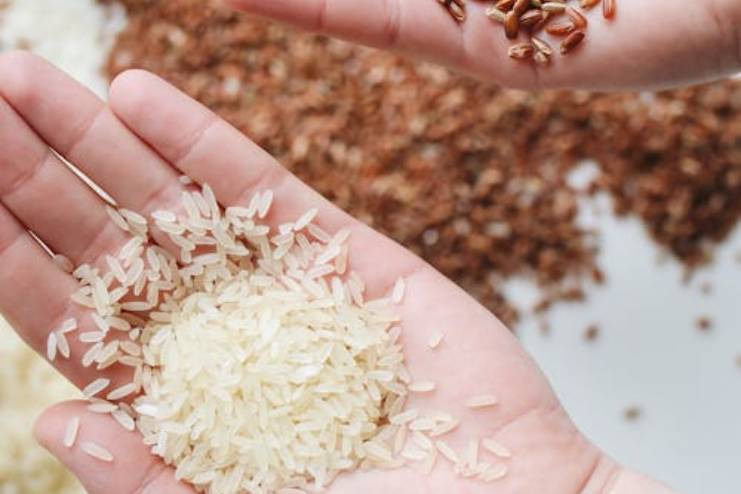Affiliate Disclaimer
Some links in this article are affiliate links. We may earn a small commission if you make a purchase through these links, at no extra cost to you. We only recommend products we find useful to our readersProper nutrition is essential for children’s growth and development. Nutrients are vital for various bodily functions. From building strong bones and muscles to supporting cognitive development and immune function. Ensuring children receive a balanced diet rich in nutrients helps them stay physically and mentally healthy. In this article, we explore ten essential nutrients that are critical for children’s growth and development.
1. Calcium

Calcium is essential for building strong bones and teeth in children. It is also required for nerve function, muscle contraction, heart health, and blood clotting. However, calcium needs vitamin D for proper absorption and utilization in the body.
Children aged 1 to 3 should consume about 500 mg daily, while those aged 4 to 8 should increase their intake to 800 mg daily for bone health.
Calcium-rich foods include:
- Milk
- Cheese
- Yogurt
- Egg yolks
- Broccoli
- Spinach
- Tofu
Incorporating calcium for kids ensures they receive the necessary nutritional requirements to support their growth and overall health.
2. Iron

Iron plays a key role in the production of red blood cells. It transports oxygen throughout the body. Adequate iron intake helps prevent anemia, a condition characterized by fatigue, muscle weakness, and impaired cognitive development. Babies are born with sufficient iron stores to last six months, after which they must take in iron through diet.
Children need around 7 mg of iron daily to support their overall health and energy levels. Consistent consumption of iron-rich foods allows their bodies to produce enough hemoglobin, a protein in red blood cells essential for oxygen transportation.
Iron-rich foods include:
- Red meats
- Poultry
- Shellfish
- Beans
- Whole grains
- Iron-fortified cereals
- Liver
- Nuts
Incorporating iron for kids is vital for maintaining healthy blood and preventing iron deficiency.
3. Vitamin D

Vitamin D is pivotal in helping the body absorb calcium, which is crucial for building strong bones and teeth. It also boosts the immune system, helping children fight infections and illnesses.
Infants and toddlers must consume about 400 IU of vitamin D daily. Ensuring an adequate intake of this vitamin is crucial for preventing conditions like rickets and promoting overall bone growth and health.
Vitamin D can be found in:
- Sunlight
- Oily fish (e.g., salmon, tuna)
- Red meat
- Egg yolks
- Fortified foods (e.g., milk, orange juice, cereals)
4. Vitamin C

Vitamin C strengthens the immune system, helping fight common illnesses like colds and infections. It aids in iron absorption, vital for preventing anemia and ensuring proper oxygen transport in the blood. It also contributes to maintaining healthy skin by promoting collagen production, which is essential for wound healing and skin health.
The recommended daily intake varies by age, but incorporating vitamin C-rich foods into their diet is a simple and effective way to meet these needs.
Vitamin C can be found in:
- Citrus fruits (e.g., oranges, lemons)
- Strawberries
- Tomatoes
- Potatoes
- Cauliflower
- Mangoes
- Broccoli
- Spinach
- Cabbage
Including vitamin C for kids will help support their immune health, skin health, and overall development.
5. Omega-3 Fatty Acids

Omega-3 fatty acids are important for brain development and cognitive function. These healthy fats support neural development to enhance learning and memory. It also contributes to heart health by maintaining healthy blood vessels and reducing inflammation.
Ensuring an adequate intake of omega-3 fatty acids is crucial for optimizing children’s brain and heart health. The recommended daily intake varies by age, but incorporating omega-3-rich foods into their diet can help meet these needs effectively.
Omega-3 fatty acids can be found in:
- Fatty fish (e.g., salmon, mackerel, sardines)
- Flaxseeds
- Chia seeds
- Walnuts
- Algal oil (a plant-based source)
6. Protein

Protein is essential for children’s growth, muscle development, and overall health. It comprises amino acids, the building blocks of muscles, tissues, and cells. Protein plays a crucial role in tissue repair, immune function, and the production of enzymes and hormones.
Children’s bodies use protein not only for muscle growth but also as an energy source, making it a vital component of their diet. The protein required varies based on age, weight, and activity level, but adequate intake is essential for proper development.
Protein can be found in:
- Meat
- Poultry
- Fish
- Eggs
- Nuts
- Beans
- Dairy products
7. Fiber

Fiber is crucial for children’s healthy digestion and overall gut health. It helps produce bowel regularity, preventing constipation and promoting a healthy digestive system. Beyond digestive benefits, fiber intake is also linked to a reduced risk of heart disease and certain cancers later in life.
Including fiber in a child’s diet is essential for maintaining their digestive health and supporting long-term wellness. Fiber-rich foods are diverse and can be easily incorporated into daily meals.
Fiber can be found in:
- Nuts
- Seeds
- Whole-grain cereals
- Chickpeas
- Lentils
8. Zinc

Zinc is vital for children’s growth, development, and immune function. It plays a key role in cell division, protein synthesis, and healing wounds, making it essential for overall health and development. It also helps strengthen the immune system, protecting children from illnesses and infections.
Ensuring adequate zinc intake is crucial for supporting a child’s immune function. Zinc-rich foods can easily be incorporated into a child’s diet to meet their nutritional needs.
Zinc can be found in:
- Meat
- Nuts
- Dairy products
- Shellfish
- Whole grains
Incorporating zinc for kids will help support their immune system and overall development.
9. Vitamin A

Vitamin A plays a significant role in vision health, immune function, and skin health. It helps maintain healthy vision by supporting the retina’s function, adjusting to bright or dim light, and preventing night blindness. It also boosts the immune system, helping the body fight infections and promoting healthy skin.
Incorporating vitamin A-rich foods can be easily added to meals to ensure adequate intake.
Vitamin A can be found in:
- Carrots
- Sweet potatoes
- Squash
- Apricots
- Spinach
- Broccoli
- Cabbage
10. B Vitamins

B vitamins are essential for a child’s energy metabolism and brain function. Each B vitamin plays a unique role in maintaining overall health. For instance, B1 (thiamine) helps convert carbohydrates into energy, B2 (riboflavin) supports growth and development, B3 (niacin) aids in digestion and skin health, B6 (pyridoxine) is crucial for brain development and function, and B12 (cobalamin) is important for red blood cell formation and neurological function.
Incorporating a variety of B vitamin sources into a child’s diet ensures they receive all the benefits these vitamins offer, supporting their growth, development, and overall well-being.
B vitamins can be found in:
- Whole grains (e.g., oats, brown rice)
- Meat (e.g., poultry, beef)
- Dairy products (e.g., milk, cheese)
- Eggs
- Legumes (e.g., beans, lentils)
Conclusion
A balanced diet is crucial for children’s growth and development. Key nutrients like calcium, iron, vitamin D, and others support everything from bone strength and immune function to cognitive development and energy levels. Parents can build a strong foundation for their children’s lifelong health and development by providing a diverse and balanced diet for their children.
In this Article




















